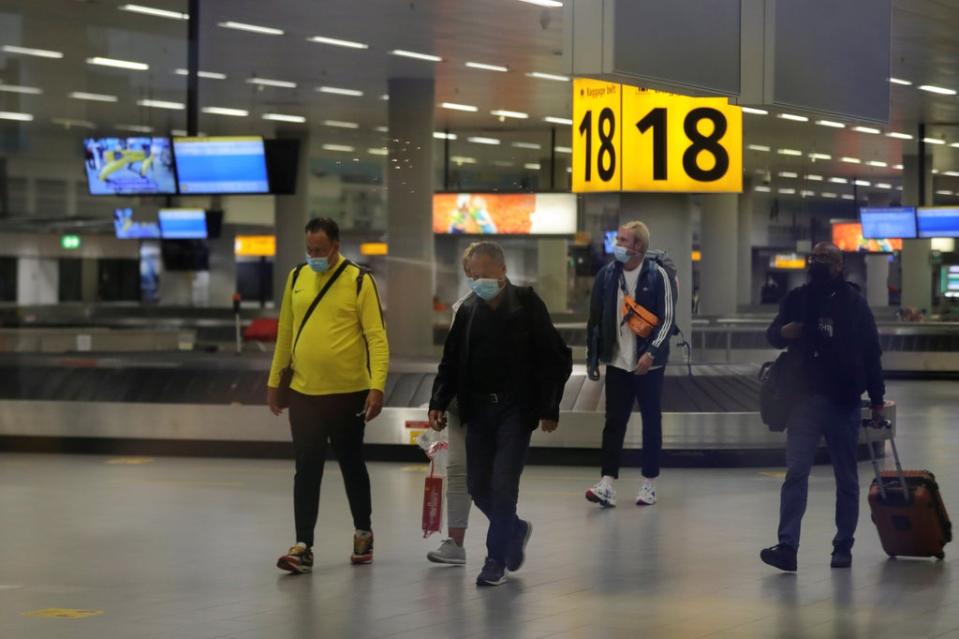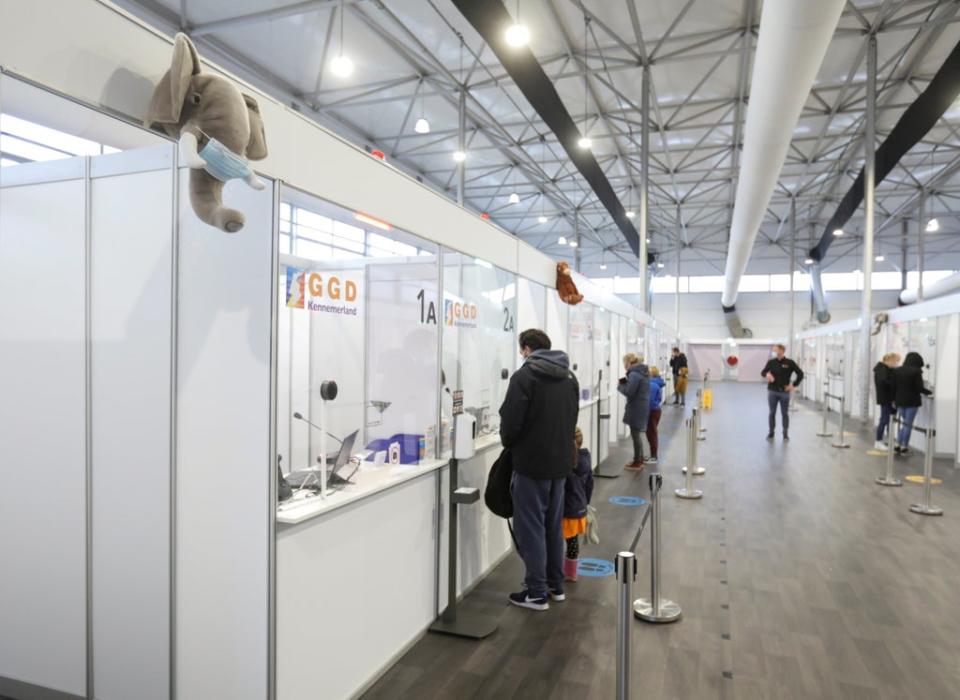Dutch authorities find 13 cases of Omicron among travellers from South Africa

Thirteen cases of the Omicron coronavirus variant have been discovered in the Netherlands among passengers who arrived from South Africa, officials have confirmed.
Sixty-one people tested positive for the Covid on Friday after arriving on the last two flights to Amsterdam’s Schiphol airport before a flight ban was put in place.
They were immediately put into isolation while sequencing was carried out to establish if they had the new variant.
The public health institute said in a statement that 13 people had the Omicron variant and testing was continuing on the samples.
Most of those who tested positive were put into isolation at a hotel near the airport, while a small number were allowed to sit out their quarantine at home under strict conditions.
Health authorities appealed to all travellers who returned from southern Africa in the past week to get tested, and set up a test center at Schiphol Airport for Dutch citizens returning from the region. The tests are voluntary, and travellers can wait for the results in isolation at home.

The discovery of Omicron, dubbed a “variant of concern” last week by the World Health Organization, has sparked worries around the world that it could resist vaccinations and prolong the nearly two-year pandemic.
First discovered in South Africa, the variant has since been detected in Britain, Germany, Italy, Belgium, Botswana, Israel, Hong Kong and Australia.
Health officials in Australia’s most populous state, New South Wales, said two passengers who arrived in Sydney from southern Africa on Saturday evening had tested positive for the Omicron variant of the coronavirus.
Both people were asymptomatic, fully vaccinated and in quarantine, NSW Health said. Another 12 passengers from southern Africa were also in 14 days of hotel quarantine, while around 260 other passengers and aircrew have been directed to isolate.
Austria was investigating a suspected case on Sunday and in France Health Minister Olivier Veran said the new variant was probably already circulating there.
Omicron is potentially more contagious than previous variants, although experts do not know yet if it will cause more or less severe Covid-19 compared to other strains.
Countries have imposed a wave of travel bans or curbs on southern Africa. Financial markets dived on Friday as investors worried that the variant could stall a global recovery. Oil prices tumbled by about $10 a barrel.
On Sunday, most Gulf stock markets fell sharply in early trade, with the Saudi index suffering its biggest single-day fall in nearly two years.
In the most far-reaching effort to keep the variant at bay, Israel announced late on Saturday it would ban the entry of all foreigners and reintroduce counter-terrorism phone-tracking technology to contain the spread of the variant.
Prime Minister Naftali Bennett said the ban, pending government approval, would last 14 days. Officials hope that within that period there will be more information on how effective vaccines are against Omicron.
Many countries have imposed or are planning restrictions on travel from southern Africa. The South African government denounced this on Saturday as unfair and potentially harmful to its economy - saying it is being punished for its scientific ability to identify coronavirus variants early.
The UK identified two cases of Omicron on Saturday prompting the government to reintroduce mandatory mask wearing and testing on travellers coming into the UK.
British health minister Sajid Javid said on Sunday he expected to receive advice imminently on whether the government can broaden a programme of providing booster shots to fully vaccinated people, to try to weaken the impact of the variant.
The German state of Bavaria also announced two confirmed cases of the variant on Saturday. In Italy, the National Health Institute said a case of the new variant had been detected in Milan in a person coming from Mozambique.
Zhong Nanshan, a Chinese respiratory disease expert, said it could take some time to reach a conclusion on the harmfulness of the new variant, state television reported on Sunday.
Although epidemiologists say travel curbs may be too late to stop Omicron from circulating, many countries - including the United States, Brazil, Canada, European Union nations, Australia, Japan, South Korea and Thailand - have announced travel bans or restrictions on southern Africa.
More countries imposed such curbs on Sunday, including Indonesia and Saudi Arabia.
Mexico’s deputy health secretary, Hugo Lopez Gatell, said travel restrictions are of little use in response to the new variant, calling measures taken by some countries “disproportionate”.
“It has not been shown to be more virulent or to evade the immune response induced by vaccines. They affect the economy and well-being of people,” he said in a Twitter post on Saturday.
Read More
Patel speaks with Dutch minister amid ‘urgent talks’ over Channel crossings
Gunman ‘captured on CCTV shooting man in front of wife and two-year-old son’
Dutch man pulled from the Thames had ‘blunt force’ injuries to the head

 Yahoo Sport
Yahoo Sport 





































